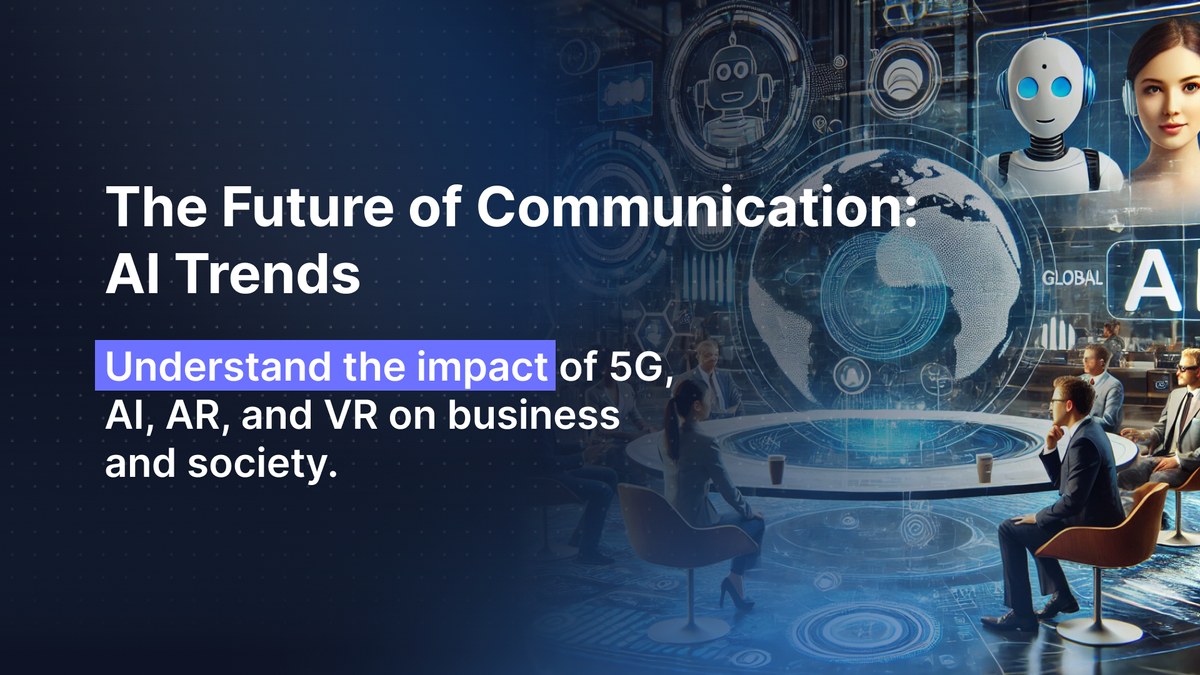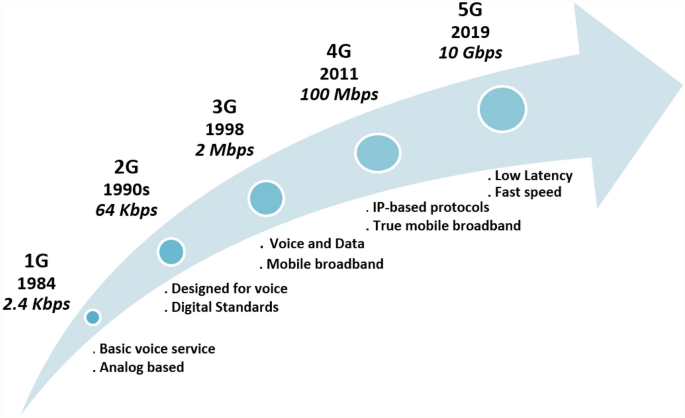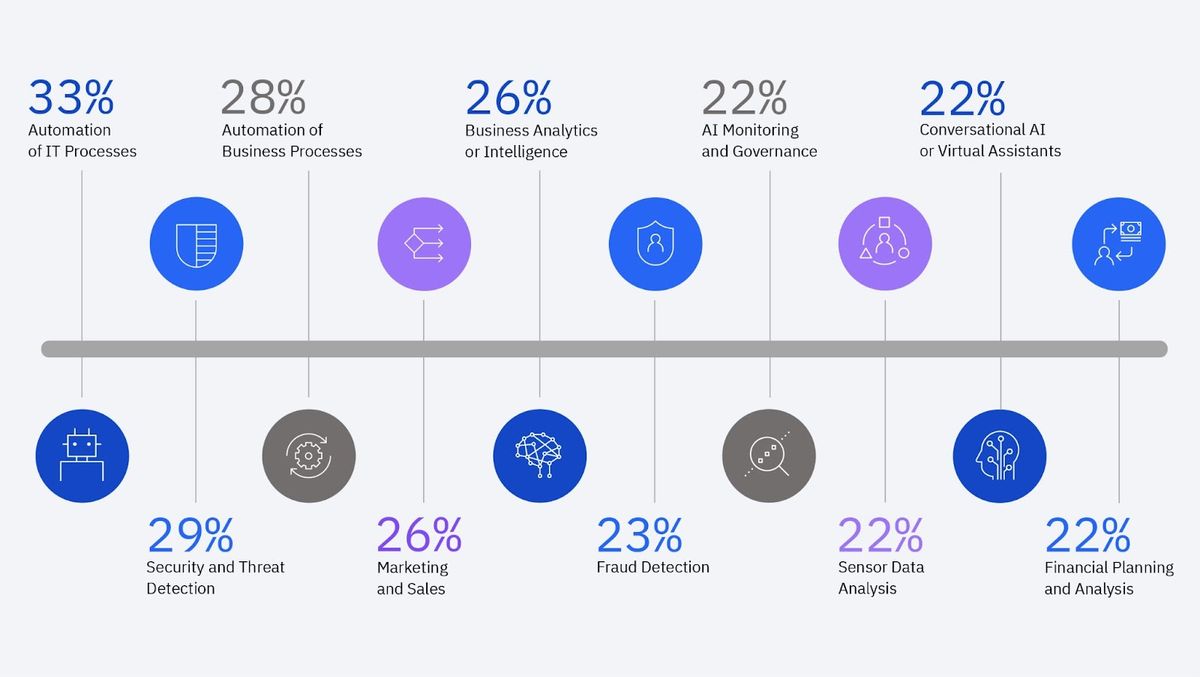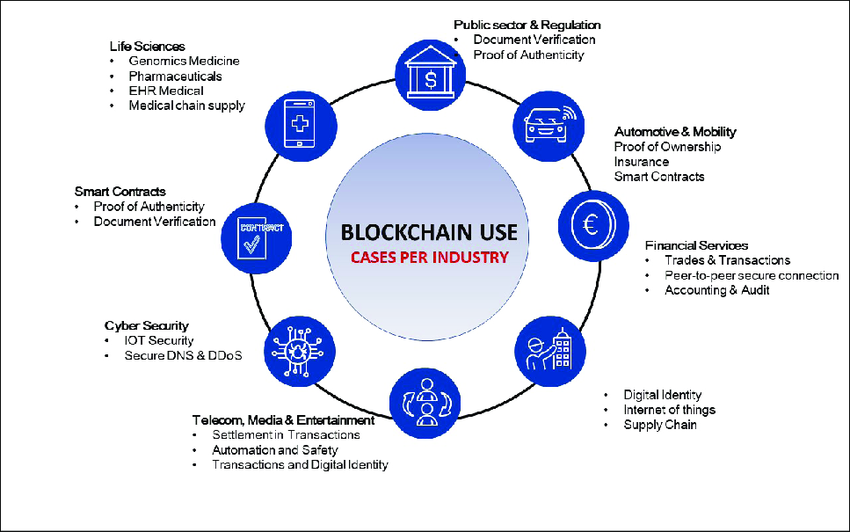Explore the latest trends in the future of communication technology. Understa...

Communication has always been an essential part of our lives and has seen a great transformation over the years. Due to technology, ways of communicating have not only become speedier but also more effective. We live now in an era where constant innovations or inventions make our ways of communication easier than ever before.
In this guide, we have covered how the future of communication changes our daily lives and the primary future of communication technology trends.
Every year, new advancements and inventions in communication shed light on the ever-evolving world of technology. The fast pace of mobile technology and widespread internet access greatly impact the frequency, efficiency, and availability of communication services worldwide.
The development of 5G, artificial intelligence, innovations such as blockchain, and other advancements hold the potential to make communication for the future highly dynamic and effective in the future.
The future of communications will enable us to connect seamlessly without being limited by geographical boundaries or other obstacles. Equally, the process will present novel business as well as social opportunities that would enhance our lives.
Communication in the future will be influenced by trends such as 5G technology, augmented reality (AR), virtual reality (VR), artificial intelligence (AI), customized communication, and improved security measures. These trends have the potential to strengthen both personal and professional communication significantly.
5G technology revolutionizes digital communication technology with faster internet speeds and more reliable connections. It will enable fast streaming, speedy transfer of data, and enhanced connectivity across multiple devices. 5G networks' higher bandwidth and less latency will allow many applications, including autonomous vehicles and smart cities. Currently, there are 236 million global 5G subscribers. By 2025, three billion subscriptions are expected.
5G will have a significant impact on many different businesses. It will allow remote operations and real-time patient monitoring in the healthcare industry. Through live content and high-definition video, it will improve immersive learning experiences in education. Smart factories with interconnected machinery and real-time data processing will help the manufacturing sector.
The below graph shows the impact of 5G evolution on intelligent automation and business digitization:

Source: Springer
Augmented Reality (AR) integrates digital content into the real world, creating interactive experiences. It enhances video calls with virtual elements like interactive charts and 3D models. It makes conversations more engaging and informative.
More than 1 Billion people now all over the world use AR. AR has various practical applications, from virtual try-ons in retail to interactive guides in tourism. 55% of customers enjoy AR shopping all over the globe.
VR technology enables interactive 3D experiences, revolutionizing remote communication with lifelike virtual meetings. It also facilitates collaborative work, training, and presentations with immersive engagement. Beyond gaming and entertainment, VR has applications in education and real estate, providing new ways to connect and collaborate.
The most significant effect was a 58% increase in people feeling connected to their colleagues when using VR, showing its potential to improve teamwork, particularly in remote conditions. Additionally, a 16% improvement in communication was seen, indicating a more transparent flow of ideas and information in virtual reality scenarios.
AI-powered virtual assistants and chatbots effortlessly make interactions more natural and intuitive, efficiently handling customer inquiries and automating tasks like scheduling meetings and managing emails. 64% of businesses believe that AI communication will increase their overall productivity.
AI-driven language translation tools seamlessly enable communication across different languages, significantly enhancing global communication accessibility.
The graph shows how organizations are using AI today:

Source: PRNewswire
To provide customized content and experiences, AI and machine learning algorithms can assess user preferences and behavior. It consists of tailored news feeds, customized marketing messages, and specific ads that relate to each person's needs and interests.
User interfaces and interactions are also included in customized communication. Understanding user preferences allows communication systems to provide more intuitive and user-friendly experiences. This customization will make messages more interesting and relevant, which results in higher user satisfaction.
One of the most improved security measures in the future of communication will be quantum communication. This technology promises unhackable encryption and highly secure data transmission.
The use of blockchain technology can enhance communication privacy. It ensures that communications are genuine and reliable. The primary purpose of blockchain technology is to secure transactions, verify identities, and protect against data breaches.
The graph below shows the Blockchain technology use case per industry:

Source: Researchgate
As technology for communication improves, it is essential to protect users' privacy. In the future, communication platforms will include privacy features, like end-to-end encryption, to keep user data safe. Also, new ways to make information anonymous and secure data storage will help protect personal data from being accessed without permission.
Future communication technology plays an important role in transforming how we connect, work, and share information. These advancements improve both personal and professional interactions:
Adopting future communication technology is vital for enhancing connectivity, efficiency, personalization, security, and collaboration, leading to a more innovative and connected world.
The future of communication technology will have a great impact on people's daily lives and businesses. Businesses are encouraged to embrace AI, AR, VR, 5G, and customized communication to enhance the customer experience.
AI customer service is used to enhance customer interactions by utilizing AI support and AI Chatbot customer service, which offers assistance to the support team in addressing customer inquiries efficiently, optimizing their processes, and conducting detailed analyses of customer issues.
If you want to deliver exceptional customer service to your clients using an AI-driven environment, you can reach out to us on Aidbase. We can assist you in revolutionizing your customer service through our chatbots, ticketing, email, and live chat automation.
Quantum Communication (QC) represents an evolving communication model where information is encoded in a quantum state utilizing photons or quantum particles, which are then transferred from one location to another. It offers a highly secure and encrypted means of transmitting information.
This technology has been successfully employed in space expeditions and is expected to impact many other fields in the future.
AI stands to influence communications in numerous ways. Educators can use many online resources to improve their professional development and knowledge base. Artificial intelligence has the potential to improve personal and social interactions through social media platforms and streamline tasks like scheduling and translation services. AI can boost the speed, capabilities, and reliability of communications.
The IoT is a concept where many devices, sensors, controllers, and other objects are connected through the internet to share data. It connects everyday items and objects to the internet and makes life easier and more efficient.
Artificial intelligence and communication with AI-powered chatbots and virtual assistants are available every time to help. It can answer common questions and also predict what customers need. It can make customers happier and reduce the workload for human customer service representatives.